Mobile Apps for the masses,
more solutions for all
by ROB McMANAMY with MIKE HRYMAK | Jul 23, 2015
The Future visited BuiltWorlds again last week and it whispered the only word that tree-huggers and dirt-movers alike can actually agree on: “paperless.”
Once thought to be only a dream, the paperless job site is now considered at least possible, if not exactly imminent. “I have actually been to a job trailer in Canada that had no paper plans,” said Dan Conery, VP of business development at Newforma, speaking last week to another full house on hand for our Mobile Apps + Construction event. “Everything was digital; that’s a huge step forward.”
After the oohs and ahhs subsided, he added, “But I was also at an airport project in Oman recently where the required paper documents for project closeout filled eight 18-wheelers. And just three weeks ago in Massachusetts, I was in a project trailer that had six full sets of paper documents.”
Such was the give and take between hope and reality last week at a lively interactive forum where presenters and attendees took turns stretching each other’s imaginations. “Things being built today were unimaginable 10 years ago,” noted Conery. And the high silos that have historically separated designers from builders, and owners from everyone else are coming down, too.
“The entire project team is our customer,” said Tooey Courtmenanche, founder and CEO of project management enabler Procore, Carpinteria CA. With that higher level of collaboration in mind, the firm is particularly proactive in soliciting feedback and advice from as many project players as possible. “To date, we have hosted 350 customer discovery meetings, and we recently had 300 attendees at one of our innovation labs,” he added. “We are 100% cloud-based, so our goal is to have the end user be able to pick up their device and be up and running with our product in hours.”
Seven Samurai: From left, our panel included moderator Anjulie Rao of the Chicago Architecture Foundation; Alex Bakman (Snappii); Tooey Courtemanche (Procore); Charles Engelke (InfoTech); Dan Conery (Newforma); Mark McKenzie (Penta); and Andy Jansen (Hard Hat Hub). Not seated: Rob McManamy.
Echoing that timing factor, self-described “serial entrepreneur” Alex Bakman, owner and founder of prolific custom app builder Snappii, spoke up on behalf of the little guy. “What programmers do in months, we can do in days,” he said. “Our idea is to let the guys in the field design their own apps; to enable the people who actually do the job to design and build apps specific to their own needs. Otherwise, lots of things can get lost between the geeks (manufacturers) and the guys in the field.”
Added Mark McKenzie, EVP at Penta Technologies and director of product management, “We all need to be in the business of removing constraints that keep our people from successfully completing the work as planned. Tools that record history are important, but technology that can help predict the future is what really excites us, and our customers.”
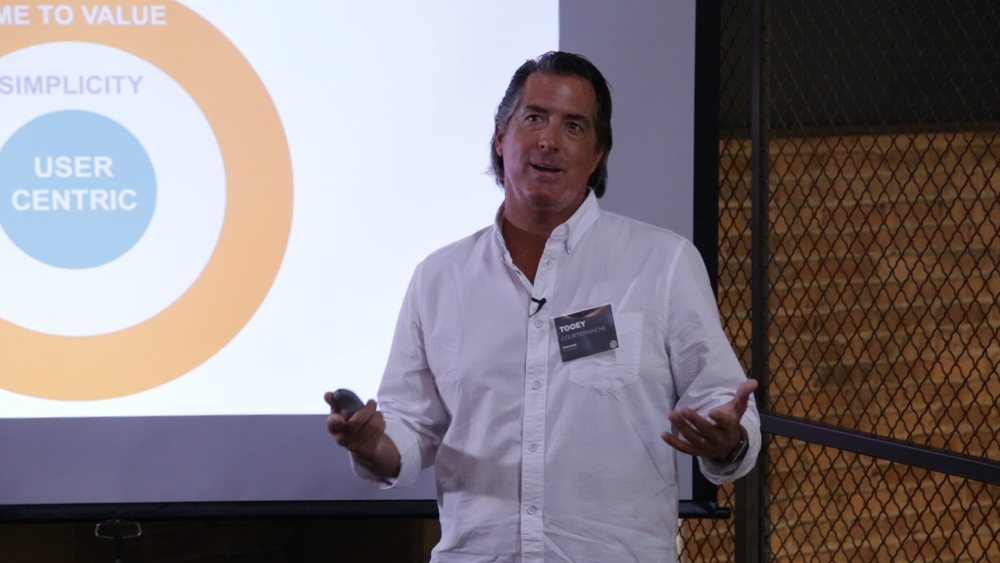
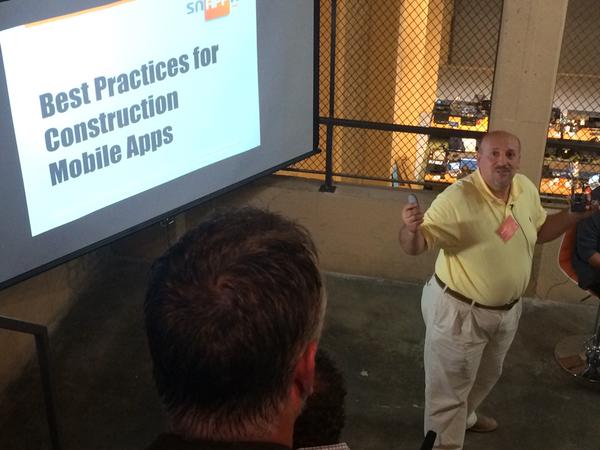
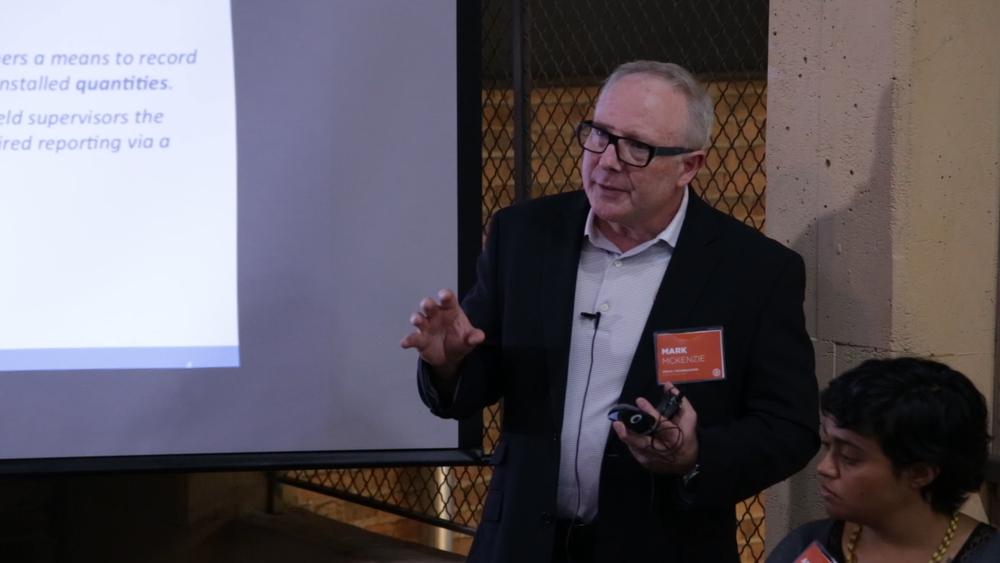
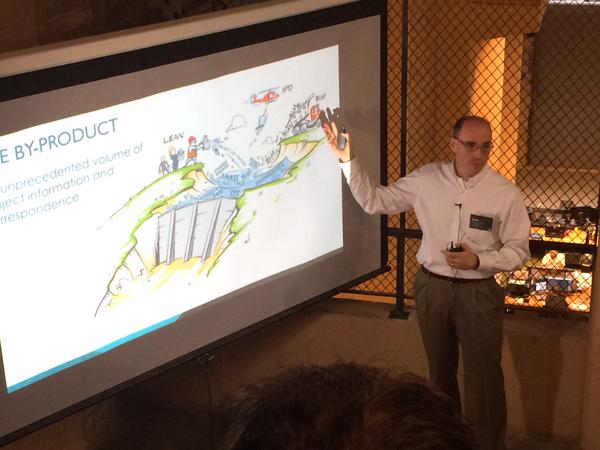
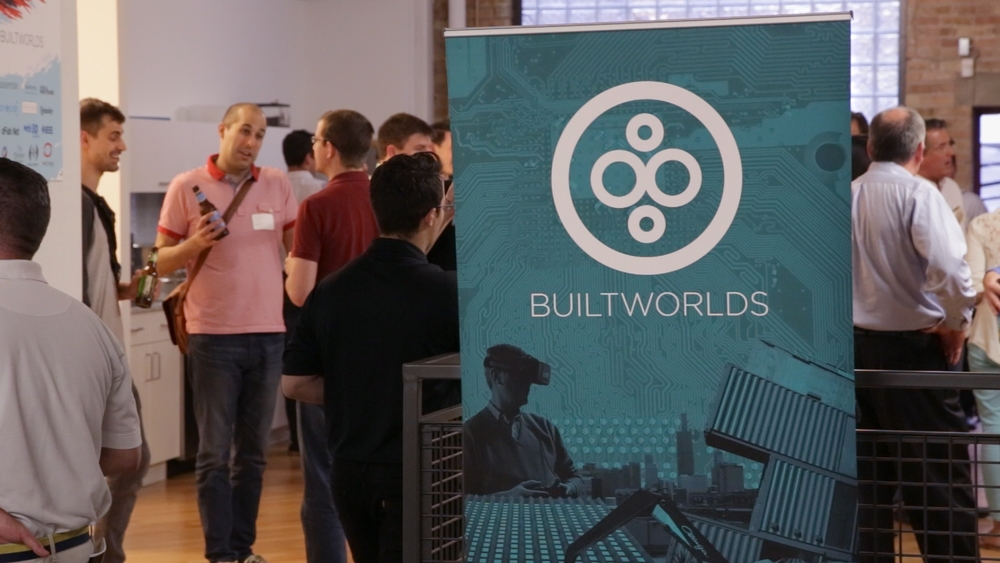
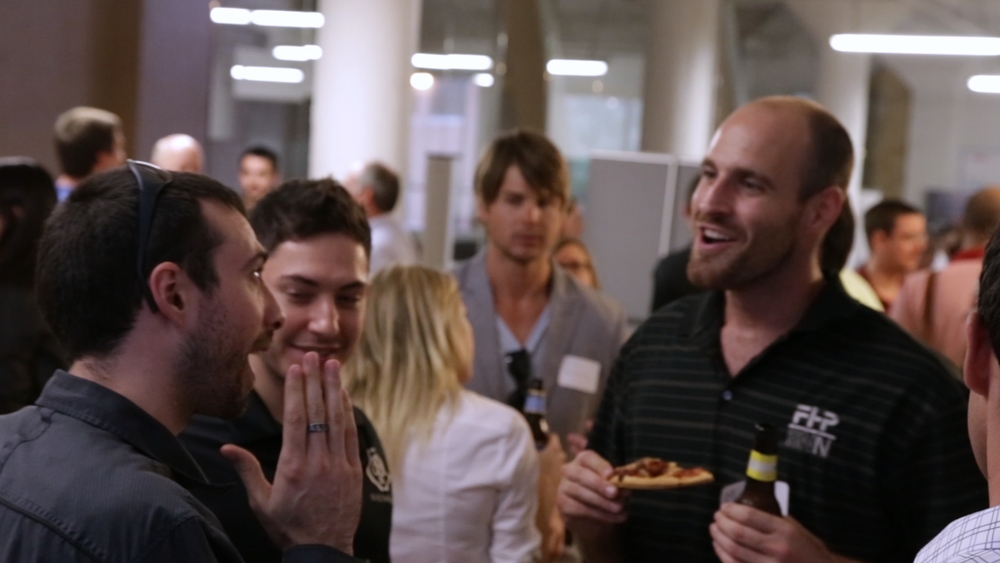
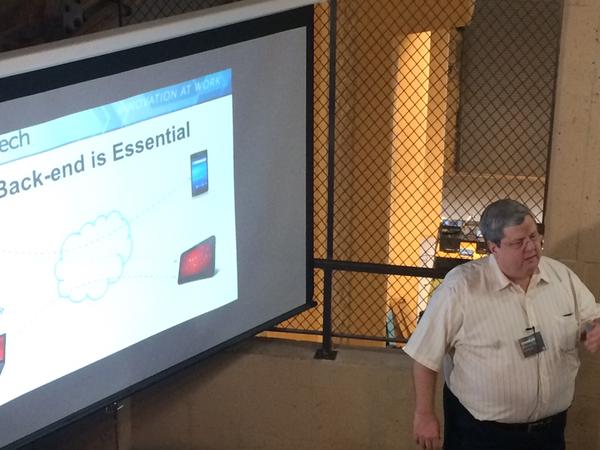
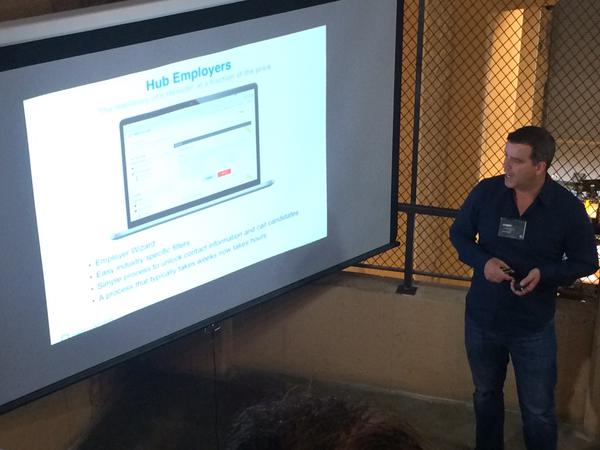
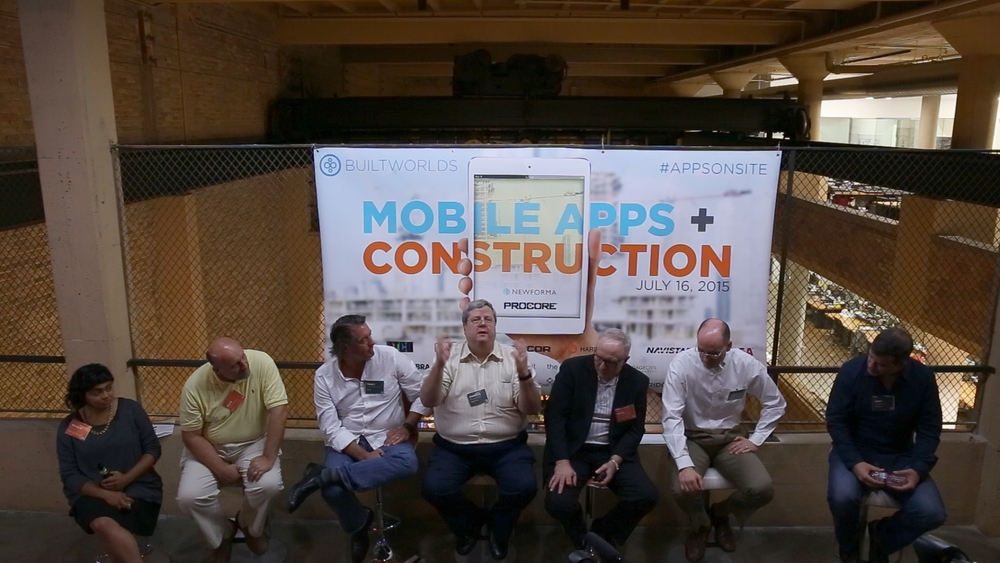
And customers are clearly driving the conversation, as they should be.
“Our mantra is really to never forget the intended user,” said Charles Engelke, CTO, Info Tech Inc., Gainesville FL. Since opening its doors in 1977, the transportation consultant incredibly has performed work for 45 different state departments of transportation. So it has a rare perspective on how oft-maligned public owners work, and the rate at which many are adapting new technology.
“Admittedly, many have been slow and are resistant to change,” said Engelke. “But others have been very good. In particular, the Iowa DOT and the Michigan DOT have been particularly progressive in implementing new technology. And the Federal Highway Administration has been pushing a new e-initiative, too.” (To see the new driverless vehicle R&D project that Michigan has launched, click here.)
Not surprisingly, the industry is now using apps for every conceivable purpose, and not only is it increasing speed of communication, it is increasing accuracy, as well. And that has been a godsend to industry job search engine Hard Hat Hub, which offers the services of a recruiter at a fraction of the cost. “We are trying to find the highest number of skilled people in the shortest amount of time,” explained Andy Jansen, Hub co-founder and managing director. He noted that more than 80% of both jobseekers and employers use mobile apps to access their services. “That actually surprised us,” he said. “It was a bit higher than we realized.”
Looking ahead, what did our mobile experts see in their crystal ball?
All were optimistic, but prompted by comments from the audience, more than a few noted that fieldwork still demands much sturdier, more durable smart phones, tablets, and laptops that can withstand the rigors of any job site. With that in mind, more rugged products like the Panasonic Toughpad and Toughbook are already on the market, but they have yet to win over our industry.
On a grander scale, Conery noted another dream that he feels can become reality.
“Project closeout should just go away,” he said, shaking his head. “It will just go away,” he added, with more than a hint of hope in his tone. Most in the room nodded in agreement.
What better place to dream than an event where everyone’s heads were already in the cloud?





Discussion
Be the first to leave a comment.
You must be a member of the BuiltWorlds community to join the discussion.